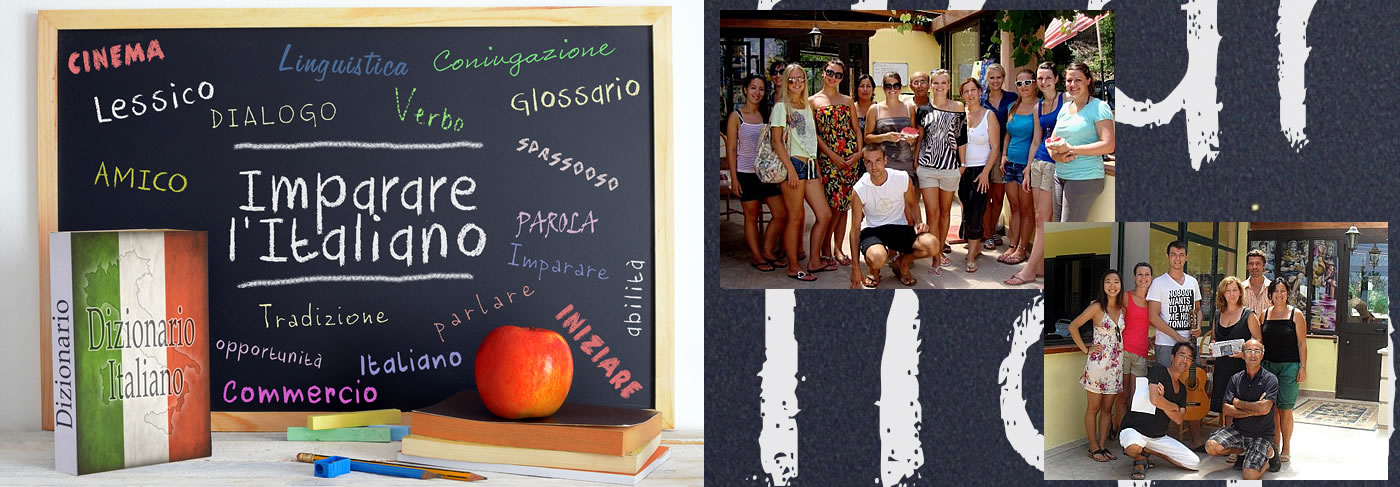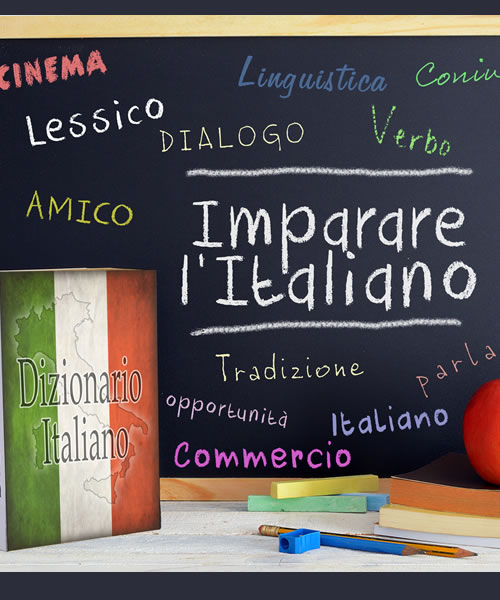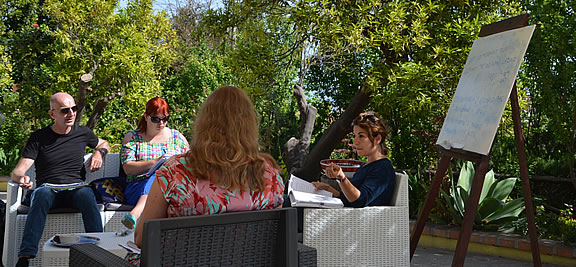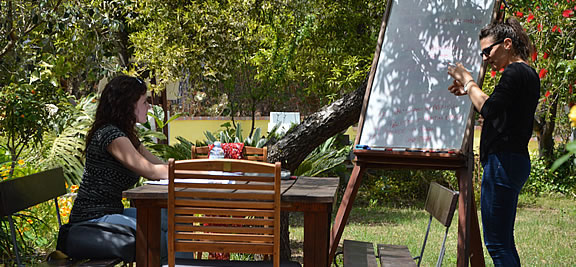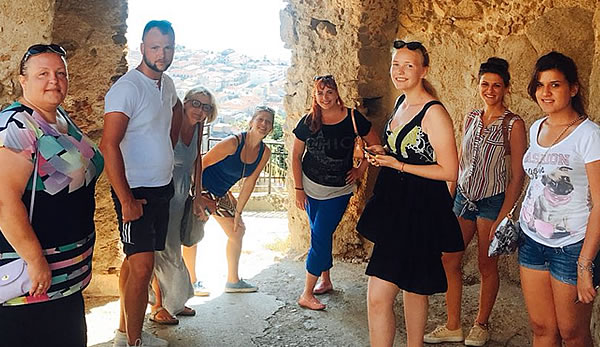How to learn Italian – best way to learn Italian
Our idea how to learn Italian is that learning has to be effective while being at the same time funny and relaxing, because these are the best conditions for a good learning process. Everything is important when you learn a foreign language and grammar is, of course, at the base. What is new is the approach to it and the interactivity between students and teacher in a pleasant atmosphere, with no fear at all to talk or to make mistakes.
A very important point when learning a new language like Italian, is putting in practice immediately what you have learned and being able to communicate in the new language. It does not matter if you learn Italian for fun, for your holidays in Italy or for work reasons – in all situations you will need to be able to communicate with Italian mother tongues. For this reason, our lessons are held in Italian from the first moment, even with the absolute beginners. Our modern teaching method is thus based on spontaneity which is the best way to learn the Italian language quickly and effectively.
We focus on practicing and implementing immediately the new learned skills in the communicative abilities of every student. Role-playing games, amusing linguistic games, idiomatic expressions, comics, newspaper articles, Italian songs… – our highly motivated and well-trained teachers will surprise students every day with something new! Discover the wide range of our Italian courses.
In addition, our special programs “vivere la lingua” consists in typical Italian experiences outside the classroom, like taking students to a full immersion in the Italian life also during their free-time.
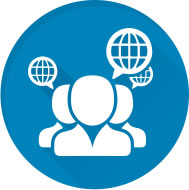
Our Italian courses are suitable for all language levels, from absolute beginner to advanced according to the CEFR, the Common European Framework of Reference for Languages. The first school day, students will start doing an entry test in order to define their knowledge of Italian and will then be placed in the Italian class that suits the best to their level. Our teachers will guide you in your personalized learning process.
The European standards divide the linguistic competence in three broad divisions and six language levels: Base level (A1 and A2), autonomy (B1 and B2) and full acquisition of the language (C1 and C2).





